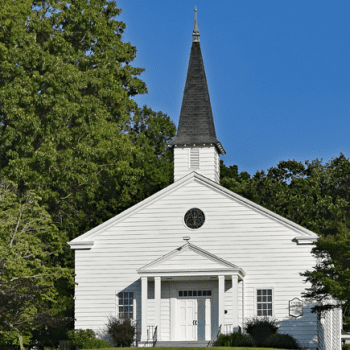
After 18 years of pastoring full-time, I stepped away from leadership, got a full-time job that was not in the church, and took time to heal and recuperate after extreme burnout. About a year later, a church called me as their bivocational pastor. For most of the year, like around half of SBC pastors, I work a full-time job and serve as pastor of a church.
One of the biggest challenges in moving to bivocational ministry was in the area of sermon prep. When I was full-time, I had a sermon prep rhythm that allowed me to finish my sermon on Friday at noon. Even though prep and writing only took around 12 hours, my weekly schedule usually revolved around sermon prep.
Now I find myself in a very different routine. My full-time job starts and stops at set times every day. I also have additional responsibilities at work that keep me an extra ten to fifteen hours per week during different seasons of the year. Sermon prep is still an important part of my week, but now I have to work on my sermon when I can. I discovered that this requires even more intentionality than when I was full-time.
What follows is the rhythm that I have tried to establish for myself in sermon prep as a bivocational pastor. In sharing this, I have avoided assigning particular tasks to particular days because every pastor’s full-time job schedule is different. However, I hope that these broad categories of sermon prep will help those serving in bivocational ministry.
Preach through Books of the Bible
Sometimes our theological convictions and practical necessity line up nicely. Preaching through books of the Bible allows God’s word to speak in context and provides God’s people with a balanced diet in his word. This helps preachers to avoid hobby horses and forces them to preach on topics that they would ordinarily avoid.
If you are a bivocational pastor, it gives you an added benefit–you don’t spend days trying to figure out what you are going to preach. I once spoke with a pastor who said that he still found himself on Sunday mornings and flipping through his Bible trying to figure out what he had the “unction” to preach. I never heard any of those sermons, but I am sure that they were shallow and thin. When you preach through a book of the Bible, you can get started as early as possible working on the next sermon, and have time for God’s word to marinate in your mind.
Start Early in the Week
Since you know what you are preaching, now you need to make sure that you get started early in the week. The first step in my sermon prep is to read the passage that I am preaching ten times. (How long it takes me to do this depends on the length of the passage.) Then, I make twenty-five observations from the passage.
By the time I have done this, I know my text pretty well. This is the most important part of your preaching other than your personal walk with the Lord. Get this essential part of sermon prep done as soon as possible during the week. When I am working a normal schedule, I try to at least read the text ten times by the time I go to bed Monday night. This allows me to spend time thinking about the sermon even when I am not sitting down and working on it.
Utilize the “Gaps” in Your Day
Unless you get a weekday or two off, it is going to be difficult to devote one long block of time (3-4 hours) to working on your sermon. Instead, you have to learn how to use “gaps” in your day to maximize sermon time. For example, you could scroll through your phone during the twenty minutes that you are in the waiting room at the doctor’s office, or you could use that time to read commentaries for your sermon or read books that will help prime the pump for sermon illustrations. Also, this is a wise way to work because you never know when an obligation at your full-time job may cut into your sermon prep late in the week. (A helpful way to learn how to do this is to read on the journalistic style of deep work in Cal Newport’s book Deep Work.)
If you learn your text really well early in the week, you can also use time when you are driving to think through the sermon. There have been many times that I have come up with points of application, sermon illustrations, or insights into the text when I was thinking about it while I was driving. You can also use driving time to call people in your church to find out how you can pray for them. Understanding how the people in your church are struggling gives you the opportunity to pray for them and gives insight into how you can help them from God’s word on Sunday morning.
Set a Time at Which You Will Start Writing
I have an extremely high standard for the quality of my sermons. When I was full-time, I developed a standard flow for each of my sermons and was able to preach my sermon without notes. I would often hold off writing the sermon until I was sure I had answered every exegetical question to the best of my ability.
When you work 40-60 hours a week and preach, you do not have the luxury of being a perfectionist about your preaching. Work as hard as you can to have the sermon ready, but at some point you have just got to get the sermon on paper and trust that the Lord is going to use it. You may not have had time to read eight commentaries. Maybe you wanted to track down an issue and read a section in a Systematic Theology text on it. As long as you know the text and have worked through it as best as possible, give yourself permission to start writing and be content with not being as prepared as you wish you could be. Besides, if you had 50 hours to work on the sermon, you would still feel you had not done all that you could.
Related Posts:
“The One Thing You Cannot Leave Out of Your Funeral Sermon”
“The Weight of Being a Pastor”
For Further Reading:
8 Hours or Less by Ryan Huguley
Deep Work by Cal Newport
Christ-Centered Preaching by Bryan Chapell











